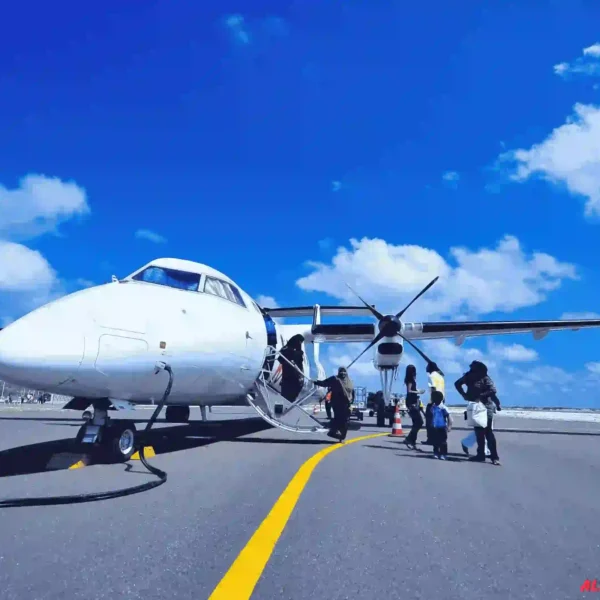Dreaming of traveling abroad as a student but don’t know where to start? You’re not alone! Planning your first trip abroad as a student can feel overwhelming—visa paperwork, budgeting, packing, and safety concerns might all seem confusing. But don’t worry!
This guide will walk you through every step to make your first international trip as a student smooth and stress-free. Whether you’re traveling for studies, an exchange program, or just an adventure, you’ll find practical tips on visas, budgeting, student discounts, cheap flights, and packing essentials.
By the end, you’ll know how to travel smart on a student budget and make the most of your journey. Let’s dive in! 🌍✈️
Step 1 – Choosing Your Destination Wisely
Picking the right destination is the first and most important step in planning your first travel abroad as a student. The right choice can save you money, reduce visa hassles, and make your experience more enjoyable. Here’s how to decide:
1. Look for Budget-Friendly Countries
Not all destinations are student-budget friendly. Some countries have high living costs, while others offer affordable travel, cheap accommodation, and low-cost food. Consider these wallet-friendly options for students:
- Thailand 🇹🇭 – Cheap hostels, street food, and budget transport.
- Turkey 🇹🇷 – Affordable flights, student discounts, and free attractions.
- Malaysia 🇲🇾 – Low-cost food, budget-friendly hotels, and great public transport.
- Portugal 🇵🇹 – Cheap accommodations and student discounts on travel.
👉 Read more: Best Budget-Friendly Destinations for Students
2. Check Visa Requirements Before Deciding
Some countries allow visa-free travel or offer easy student visas, while others have strict policies. Before choosing a destination, check:
✅ Visa-free or visa-on-arrival options (Saves time and money).
✅ Student visa rules (Required documents, fees, processing time).
✅ Work and travel options (If you want to earn while studying or traveling).
👉 Explore: Visa-Free Countries for Pakistani Students
3. Consider Student-Friendly Cities
Some cities are better for students traveling on a budget because they offer:
🛏️ Cheap student accommodations (Hostels, dorms, shared apartments).
🚆 Affordable public transport (Metro passes, student discounts).
🍽️ Budget-friendly food (Street food, university cafeterias).
Top student-friendly cities include:
- Berlin, Germany 🇩🇪 – Free university education and budget travel options.
- Barcelona, Spain 🇪🇸 – Student discounts on museums, transport, and food.
- Kuala Lumpur, Malaysia 🇲🇾 – Cheap meals and affordable apartments.
Final Tip: Choose Wisely & Plan Ahead
Once you’ve picked a student-friendly destination, start researching cheap flights, accommodation options, and local travel hacks. Choosing the right place can save you hundreds of dollars and make your trip more fun!
Step 2 – Understanding Visa & Travel Requirements
Before packing your bags, you need to sort out your visa and travel documents. Many students face travel delays just because they didn’t apply for the right visa on time. Here’s what you need to know:
1. Check Visa Requirements for Your Destination
Each country has different visa policies. Some allow visa-free entry or visa on arrival, while others require a student visa or tourist visa. To check visa requirements:
🔹 Visit the official embassy website of your destination.
🔹 Use online visa checkers like IATA Travel Centre.
🔹 Join student travel forums to learn from others’ experiences.
2. Apply for a Visa Early
If your destination requires a student visa or tourist visa, apply at least 2–3 months before your travel date. Most visa applications require:
✅ A valid passport (With at least 6 months validity).
✅ Proof of accommodation (Hotel booking or university dorm confirmation).
✅ Bank statements (To prove you can cover expenses).
✅ A return ticket (Some countries require proof of departure).
✅ Invitation letter (For students attending exchange programs or universities).
💡 Pro Tip: Some countries offer e-visas that you can apply for online without visiting an embassy!
3. Get Travel Insurance (Don’t Skip This!)
Many students ignore travel insurance, but it’s a must! It protects you from medical emergencies, lost luggage, or trip cancellations. Some universities and visa processes even require travel insurance.
📌 What to look for in student travel insurance?
- Medical coverage (In case you get sick abroad).
- Lost baggage protection (Covers lost or stolen items).
- Flight cancellation protection (Refunds for unexpected trip delays).
4. Understand Immigration Rules
Even with a visa, you must follow immigration rules to enter a country smoothly. Some key points:
🚫 Don’t carry restricted items (Check airport rules).
📜 Keep printed copies of your visa and travel documents.
💬 Prepare for immigration questions (They might ask why you’re visiting and where you’ll stay).
Final Tip: Double-Check Everything!
A small mistake, like a missing document or an expired passport, can ruin your trip. Before you fly:
✅ Review your visa and travel requirements.
✅ Make copies of all important documents.
✅ Save embassy contacts in your phone.
👉 Also read: How to Avoid Common Student Travel Mistakes
Step 3 – Budgeting for Your Trip
Traveling abroad as a student doesn’t have to drain your savings. With the right budget plan, you can explore new countries without going broke. Here’s how to plan your travel budget smartly:
1. Estimate Your Total Expenses
Before booking anything, make a list of all expected costs:
💰 Flight Tickets – Compare prices on sites like Skyscanner or Google Flights.
🏠 Accommodation – Budget for hostels, student dorms, or Airbnb.
🍽️ Food – Eating out vs. grocery shopping and cooking.
🚆 Local Transport – Metro, buses, or city travel passes.
🎟️ Attractions & Activities – Museums, tours, and fun experiences.
📞 SIM & Internet – Local SIM vs. international roaming.
👉 Also Explore: How to Find Cheap Flights for Students
2. Set a Daily Spending Limit
Break down your budget into daily expenses so you don’t overspend. For example:
- $5–10/day – Street food & groceries 🍕
- $10–20/day – Local transport & sightseeing 🚋
- $20–40/day – Accommodation 🏡
💡 Pro Tip: Use apps like Trail Wallet or Money Manager to track your spending in real-time.
3. Find Ways to Save Money While Traveling
✅ Use Student Discounts – Many places offer student cards for cheaper transport, food, and tickets.
✅ Book Flights in Advance – Tickets are cheaper 2–3 months before departure.
✅ Stay in Budget-Friendly Hostels – Many offer free breakfast and shared kitchens.
✅ Cook Your Own Meals – Buy groceries instead of eating out daily.
✅ Use Public Transport – Avoid taxis and use buses, metro, or bikes.
👉 Read More: Best Budget Travel Hacks for Students
4. Have an Emergency Fund
Unexpected costs can happen anytime—a missed flight, lost luggage, or medical expenses. Always keep an extra $200–$500 in case of emergencies.
📌 Where to keep emergency money?
- A separate debit card (Low international fees).
- A small cash amount in a hidden pocket.
- A trusted friend/family contact who can transfer money if needed.
5. Get a Budget-Friendly Travel Card
Avoid high currency exchange fees by using a travel-friendly debit or credit card. Some options include:
💳 Wise (formerly TransferWise) – Low conversion rates & no hidden fees.
💳 Revolut – No fees on foreign transactions & easy top-ups.
💳 N26 – Great for students traveling in Europe.
Final Tip: Plan, But Stay Flexible!
A budget helps you control expenses, but don’t stress if you go over by a few dollars. Some experiences are worth spending on! Plan smart, spend wisely, and enjoy your trip. ✈️🌍
👉 Read More: Mistakes to Avoid When Traveling on a Budget
Step 4 – Booking Flights & Accommodation
Now that you’ve planned your budget, it’s time to book your flights and find a place to stay. As a student traveler, getting the best deals on flights and accommodation can save you a lot of money. Here’s how to do it smartly:
1. How to Find Cheap Flights for Students
Flight tickets can be one of the biggest expenses, but with the right tricks, you can save hundreds of dollars.
✈️ Best Ways to Find Cheap Flights:
✅ Book Early – The best time to book is 2–3 months before departure.
✅ Use Flight Comparison Websites – Check Google Flights, Skyscanner, Momondo for deals.
✅ Be Flexible with Dates – Flying mid-week (Tuesday & Wednesday) is often cheaper.
✅ Set Price Alerts – Websites like Hopper notify you when prices drop.
✅ Check Student Discounts – Some airlines offer special fares for students. Try StudentUniverse or STA Travel.
💡 Pro Tip: Clear your browser cookies or use incognito mode when searching for flights. Some websites increase prices based on your search history!
👉 Explore: How to Find Cheap Flights for Students
2. Choosing Budget-Friendly Accommodation
Your accommodation choice depends on your budget and comfort level. Here are the best options for student travelers:
🏠 Hostels – Cheap, social, and great for meeting other travelers. Check Hostelworld for reviews.
🏡 Airbnb or Guesthouses – Good for longer stays, with kitchen access to save on food costs.
🏨 Budget Hotels – If you prefer privacy, use Booking.com for discounts.
🎓 University Dorms – Some universities offer short-term stays for visiting students.
🤝 Couchsurfing – Stay with locals for free and experience the culture firsthand.
💡 Pro Tip: Always read reviews and check location safety before booking!
👉 Read More: Best Budget Accommodation Options for Students
3. Booking Tips to Save Money
✅ Book in Advance – Prices go up last minute, so book at least a month before.
✅ Look for Free Perks – Some places offer free breakfast, Wi-Fi, or laundry.
✅ Stay Outside City Centers – Accommodation is cheaper outside tourist hotspots.
✅ Use Student Discounts – Websites like UNiDAYS and ISIC offer student deals.
Final Tip: Double-Check Before You Book!
✔ Check cancellation policies – Plans change, so book flexible options.
✔ Confirm check-in & check-out times – Avoid extra fees for late checkouts.
✔ Save hotel/hostel address – Keep it handy in case you have no internet on arrival.
💡 Bonus: Some hostels and guesthouses offer student work-exchange programs—work a few hours and stay for free!
👉 Explore: How to Save Money While Traveling as a Student
Step 5 – Packing Smart for Your Trip
Packing smart can make your trip easier, lighter, and stress-free. As a student traveler, you don’t need to carry your entire closet—just essentials that keep you comfortable and prepared. Here’s how to pack efficiently without overloading your backpack.
1. Choose the Right Luggage
Your choice of luggage depends on your destination, trip length, and travel style.
🎒 Backpack (Carry-On Size) – Best for short trips, easy to carry.
🧳 Rolling Suitcase – Good for longer trips or city travel.
🎒+👜 Backpack + Small Bag – Keep valuables & documents in a smaller bag.
💡 Pro Tip: Always check airline baggage rules to avoid extra fees for oversized luggage.
2. Pack Only the Essentials
Stick to the “Rule of 3”: 3 tops, 3 bottoms, 3 pairs of socks, and 3 sets of underwear. This keeps your bag light and easy to manage.
👕 Clothing:
✅ Weather-appropriate outfits – Check the climate before packing.
✅ Comfortable shoes – Sneakers for walking, flip-flops for hostels.
✅ Light jacket – Even in warm places, it can get chilly at night.
🛂 Travel Documents & Essentials:
✅ Passport & Visa – Keep digital copies as backup.
✅ Student ID – Get discounts on transport & attractions.
✅ Travel Insurance – Essential for medical or lost baggage emergencies.
✅ Currency & Bank Cards – A mix of cash + travel-friendly debit/credit cards.
🔌 Tech & Gadgets:
✅ Phone + Charger – Essential for maps, bookings, and staying connected.
✅ Power Bank – Avoid running out of battery on long travel days.
✅ Universal Travel Adapter – Some countries have different power outlets.
✅ Earphones or Noise-Canceling Headphones – Great for long flights or hostels.
🧼 Toiletries & Health Items:
✅ Toothbrush, toothpaste, deodorant, and travel-size soap/shampoo.
✅ Sunscreen & Lip Balm – Protect your skin in any climate.
✅ Basic First Aid Kit – Band-aids, painkillers, and motion sickness pills.
👉 Explore: Travel Safety Tips for Students
3. Pack Smart to Save Space
🎒 Roll Your Clothes – Saves space and prevents wrinkles.
📦 Use Packing Cubes – Organize clothes & make unpacking easy.
👕 Wear Heavy Items on the Plane – Jackets and boots take up too much space in your bag.
🛅 Leave Room for Souvenirs – You’ll probably buy something during your trip!
💡 Bonus Tip: Carry a reusable water bottle to save money & stay hydrated.
Final Tip: Double-Check Before You Leave!
✔ Do a final bag check the night before your flight.
✔ Keep important items in your carry-on, NOT checked luggage.
✔ Weigh your bag to avoid airline fees for overweight luggage.
Packing light means less stress, more freedom, and easy movement—so only bring what you truly need! 🌍🎒
👉 Read More: Essential Packing List for First-Time Travelers
Step 6 – Navigating Airports & Immigration Smoothly
Airports and immigration can be overwhelming, especially if it’s your first time traveling abroad as a student. But don’t worry! With the right preparation, you can move through security, immigration, and baggage claim without stress. Here’s how to avoid common mistakes and breeze through the airport like a pro.
1. Arriving at the Airport on Time
⏳ How Early Should You Arrive?
- International flights: 3 hours before departure
- Domestic flights: 2 hours before departure
🚖 How to Get to the Airport?
- Public Transport – Trains/buses are often the cheapest option.
- Ride-Sharing – Apps like Uber or Lyft offer convenience.
- Airport Shuttle – Some universities provide student airport shuttles—check in advance!
💡 Pro Tip: Check traffic updates before leaving to avoid delays.
2. Going Through Airport Security
Security checks are a must. Be prepared to speed up the process:
✅ Have Your Boarding Pass & Passport Ready – You’ll need them multiple times.
✅ Wear Easy-to-Remove Shoes – Some airports require you to take them off.
✅ Follow the 3-1-1 Rule for Liquids – Only 100ml (3.4 oz) per container, all packed in a clear plastic bag.
✅ Remove Electronics & Metal Items – Laptops, phones, and belts must go through the scanner separately.
💡 Pro Tip: Avoid carrying prohibited items (scissors, razors, big bottles of shampoo) to prevent delays.
3. Understanding Immigration & Customs
Immigration officers may ask you a few basic questions about your visit. Stay calm, answer honestly, and have your documents ready.
🛂 Common Immigration Questions:
- Why are you traveling to [country]?
📝 Answer: “I’m a student traveling for leisure/studies.” - How long will you stay?
📝 Answer: “I have a return flight booked for [date].” - Where will you stay?
📝 Answer: “I’ve booked accommodation at [hotel/hostel name].”
📄 Documents You Must Show:
✅ Passport & Visa (if required)
✅ Return flight ticket
✅ Proof of accommodation
✅ Student ID (if needed for discounts or verification)
🚨 Customs Check:
- If you have nothing to declare, go through the Green Lane.
- If carrying restricted items (large amounts of cash, food, medicines, or electronics), use the Red Lane.
💡 Pro Tip: Always double-check visa and entry requirements before flying!
4. Collecting Your Luggage & Exiting the Airport
🛄 Picking Up Your Bags at Baggage Claim
✅ Check screens for the correct carousel number.
✅ Match your bag’s tag with your luggage ticket.
✅ If your bag is missing, report it immediately to airline staff.
🚕 Getting to Your Destination from the Airport
- Use official airport taxis or rideshare apps.
- Public transport is often cheaper but may take longer.
- Some universities offer pickup services for international students—check before arrival!
💡 Bonus Tip: If you have a long layover, check if the airport has student lounges or free Wi-Fi to relax.
Final Tip: Stay Calm & Confident!
Navigating airports and immigration is easier than it seems. Just follow instructions, keep your documents ready, and ask for help if needed.
Step 7 – Staying Safe & Healthy While Traveling
Traveling abroad as a student is exciting, but staying safe and healthy should be your top priority. Whether you’re exploring busy cities, trying new foods, or using public transport, a little preparation can prevent big problems. Here’s how to stay safe, avoid scams, and take care of your health while traveling.
1. Keeping Yourself Safe in a New Country
🔑 Know Emergency Numbers
- Save local emergency contacts (police, ambulance, and embassy).
- Keep a list of important contacts in case your phone is lost.
🗺 Stay Aware of Your Surroundings
- Avoid walking alone at night in unfamiliar areas.
- Keep an eye on your belongings in crowded places to prevent pickpocketing.
- If lost, use Google Maps or ask for help in a safe place like a hotel or shop.
💳 Protect Your Money
- Use a travel-friendly debit/credit card instead of carrying too much cash.
- Keep your money in different places (some in your wallet, some in your bag).
- Use ATMs inside banks rather than street ATMs to avoid card scams.
🚖 Be Careful with Transport
- Only use official taxis or ride-sharing apps (Uber, Bolt, etc.).
- If using public transport, keep your bag close and check routes beforehand.
💡 Pro Tip: Avoid overly friendly strangers who offer free rides or “special deals”—these are often scams.
2. Taking Care of Your Health While Traveling
🩺 Travel Insurance Is a Must
- Get student-friendly travel insurance to cover medical emergencies, lost baggage, or trip cancellations.
- Keep a digital and printed copy of your insurance details.
🥗 Eat Smart & Stay Hydrated
- Avoid street food in areas where hygiene is questionable.
- Drink bottled or filtered water to avoid stomach issues.
- Carry snacks like granola bars in case you can’t find familiar food.
😴 Get Enough Rest
- Long travel days can be exhausting—ensure you rest well between activities.
- If staying in a hostel, use earplugs and an eye mask for better sleep.
🚑 Carry a Basic First-Aid Kit
Pack:
✅ Painkillers & fever medicine
✅ Motion sickness tablets
✅ Band-aids & antiseptic wipes
✅ Prescription medicines (with a doctor’s note)
💡 Pro Tip: If you have allergies or dietary restrictions, learn key phrases in the local language to explain them in restaurants.
3. Digital Safety: Protecting Your Data & Online Privacy
🔒 Use Secure Wi-Fi
- Avoid public Wi-Fi in cafes or airports—use a VPN to protect your data.
- Never log in to bank accounts on public networks.
📍 Share Your Location with Someone You Trust
- Use Google Maps location sharing with family or friends.
- Check in regularly with someone back home.
💡 Pro Tip: Keep scanned copies of your passport, visa, and travel documents in your email or cloud storage.
Final Tip: Trust Your Instincts!
If something feels off, walk away. Your safety always comes first! Be smart, stay alert, and enjoy your journey worry-free.
👉 Explore: Must-Have Travel Health Tips for Students
Finalize Your International First Trip Abroad as a Student
Planning your first travel abroad as a student might seem overwhelming, but with the right preparation and mindset, it can be one of the most rewarding experiences of your life. From choosing the right destination to budgeting wisely, staying safe, and making the most of every moment, each step helps ensure a smooth, enjoyable, and unforgettable journey.
🌍 Key Takeaways:
✅ Pick a destination that suits your budget and interests.
✅ Research visa requirements and travel documents early.
✅ Create a realistic budget and stick to cost-saving strategies.
✅ Book flights and accommodation in advance for better deals.
✅ Pack smartly, keeping essentials and weather conditions in mind.
✅ Stay safe and healthy by being alert, prepared, and cautious.
✅ Step out of your comfort zone, try new things, and immerse yourself in the local culture.
✅ Make connections, take photos, and document your experiences.
🚀 Now, it’s time to pack your bags, embrace the adventure, and make lifelong memories!
💡 Your Next Step?
If you found this guide helpful, check out our other student travel tips for more insights on planning budget-friendly trips, finding travel deals, and exploring hidden gems worldwide.
👉 Explore: Ultimate Student Travel Guide – Tips, Hacks & Destinations






